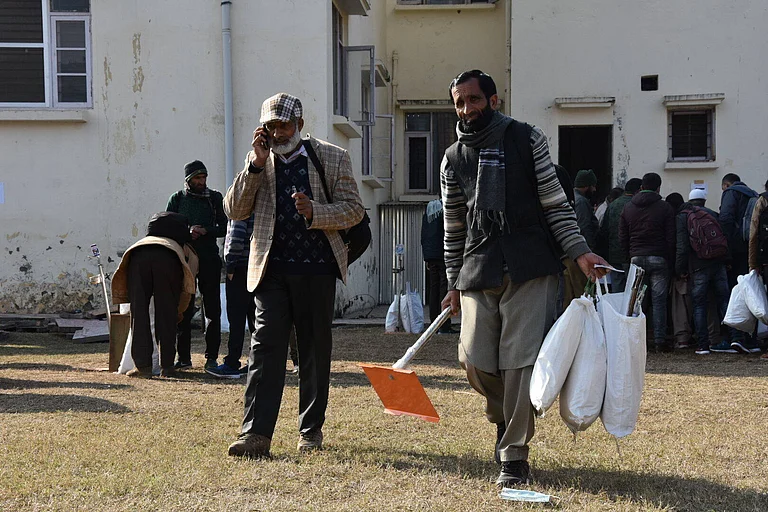New Delhi is all set to host leaders and representatives from 19 countries and the European Union on September 9 and 10, 2023 for the G20 Summit. The meeting is significant as it will mark the final gathering under India’s year-long presidency. The world would eagerly await for the customary joint communiqué which will be declared at the end of the G20 Summit. Previous communiqués charted common positions on several global issues like international armed conflicts, economic and social consequences of war, climate change, environment, poverty, terrorism, trade, disaster management, clean energy, space, etc. India has consistently extended support and cooperation on these important matters, which affirms New Delhi’s constructive role in addressing these issues of global concern.
However, as a leading representative of the Global South, India’s responsibility for the upliftment and development of women must occupy a special place. At a time when India proudly proclaims the magnificent role of women in the success of Chandrayaan-3, special attention must be given to the overall well-being of women so that they can be protected from the complex nexus of a patriarchal system. The G20 must declare in its final communique the importance of nuclear energy as a medium for transition to cleaner energy to facilitate sustainable changes for a carbon-free energy-driven green economy. These are important drivers for an effective climate-oriented energy source that among many other advantages, will significantly benefit the ‘womankind’.
The coronavirus pandemic brought the world to a standstill causing loss that will take a long time to recompense. Covid-19 wreaked havoc on human life and livelihood to the extent that it has left an indelible mark on our minds. Apart from serious health impacts, the international community felt the burden of a slowed-down economy that affected the common people most. Post-pandemic, there is a rebound which has charted the course for an accelerated and aggressive revival of the economy. As economic trends reveal, this phenomenon invariably will push for intensive and competitive use of affordable and available energy sources which will lead to armed conflict, increased environmental concerns and global health impacts. Fossil fuels like coal, petroleum, and natural gas all contain carbon and intensive usage of these sources over a long period will have a serious impact on climatic conditions that are critical in nature.
Efforts to bounce back from a stagnating economy is good news for the global economy, but it has its own repercussions. In both pre and post-phases of Covid-19, women have suffered
the brunt of a stagnating and vigorously changing economy. Inflating demands for energy have compromised the quality of life. There is expanding pressure on existing and finite resources which puts pressure on the quality of life. The rising costs of fossil fuels have substantially imbalanced the standards of lifestyle. Unfortunately, women have been at the forefront, like sacrificial lambs, when it comes to compromising their health, food, hygiene, de-carbonised environment and psychological well-being. They do this mostly out of compulsion of limited resources. Other times, they are subjected to this second-class status because of the patriarchal complexities of the society where sacrifices by women are considered ornaments of a good-natured woman. This is alarming and unless timely addressed, it might pose serious consequences for the world. Women are not only the bearers of the next generation but also natural carriers of knowledge from which the world can enormously benefit. Hence, it is of paramount importance that their concerns are adequately addressed.
Nuclear energy unlike, other fossil fuels is a clean source of energy. It is an important medium for reducing greenhouse emissions and helps contribute to the decarbonisation process. How does nuclear energy help women and their kind? The answer to this is manifold. Nuclear energy is a clean and affordable source of energy and unlike coal, petroleum and natural gas, nuclear energy is not a finite source. Hence, proper generation of nuclear energy can make it an easily accessible and abundant source of energy. This will invariably have a positive impact on the lives of women, particularly in the rural areas who are used to the traditional carbon-intensive sources to meet their energy requirements. These traditional methods are pollution-intensive and over a long period of time pose serious health risks for women.
The G20 is an influential body which provides a platform for crucial issues of global concern. As a collective nation, the G20 must undertake dedicated responsibility to highlight the importance of nuclear energy as a cheap and de-carbonised source of energy. Nuclear energy can reduce the expanding demands on fossil fuels and significantly contribute to augmenting the quality of life for the common people. Easy and affordable availability of resources will ameliorate the conditions and well-being of women. At the New Delhi meet, India and the other G20 members must advocate the efficacy of nuclear energy as an eco-feminine friendly energy source for the welfare of womankind.
(Reshmi Kazi is a professor at Jamia Millia Islamia.)





















